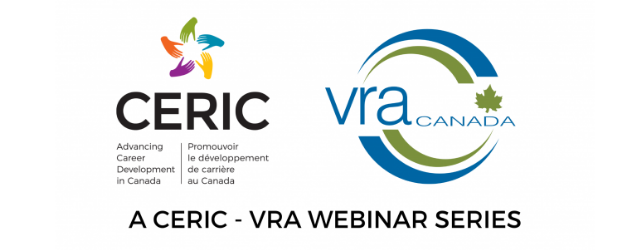
Overview:
Decades of empirical research supports the influence and efficacy of counselling. In spite of the confidence we might feel in the ability of our profession to improve the quality of people’s lives, there is the potential of harm if we do not adhere to our ethical standards. The impact of the COVID pandemic has further challenged our professional practices. The use of technology and working remotely comes with new and evolving ethical considerations while the demand for services has put our self-care and resilience on the back burner. Learn the importance of maintaining the highest ethical standards in your practice as well as the possible pitfalls and dangers of common mistakes. This 3-part series will provide information on several key elements of ethics in the professional counselling relationship with specific reference to the ethical standards of CCDP, VRA, CCPC and CPA.
Why Career Practitioners, Vocational Rehabilitation Professionals and Other Helping Professionals Should Attend:
In this time of COVID, many professionals are working remotely from home offices. Technology and home office environments are part of an ethical climate that comes with its own set of ethical guidelines. We will examine this closely as it ties to our business practices and policies.
We will also examine the overall responsibility of the professional to the public, and their client, and to themselves. The importance of cultural competency will also be discussed as well as the role of advocacy in our work.
Finally, the rights of the client will be examined. This session will review the deeper meaning of informed consent as well as its key components. We will also discuss client rights in terms of confidentiality and professional boundaries.
Webinar #1: Ethical Climate
Current trends in technology have changed the field and removed many roadblocks; for some, it also comes with new and evolving ethical considerations in the professional environment. This session will cover important questions such as:
- How does technology impact our ethical climate?
- What role does social media play in maintaining an ethical practice?
- What steps are needed to ensure a safe, ethical environment when working remotely?
- How do we manage business practices if we find ourselves in conflict with our employers’ policies and practices?
Webinar #2: The Responsibilities of the Professional
This session will highlight the importance of ethics in professional practice.
- What does it mean to be competent and how do we ensure we maintain this competency?
- What is cultural competence, how is it important, and how do we achieve it?
- What is the role of advocacy in our practice and how do we do this without risking our business relationship with customers or those agencies who refer clients to us?
- What is the ethical responsibility of self-care to ourselves and to our co-workers?
- How do you work with a client whose values conflict with your values?
Webinar #3: The Rights of the Client
The third session will highlight the importance of the rights of the client in the professional working relationship.
- What does informed consent really mean and what key elements must it contain?
- What does confidentiality include and what does it not cover?
- What are the boundaries of privacy and how do we manage confidentiality when we have multiple relationships or if we find ourselves unexpectantly in a social situation with clients?


